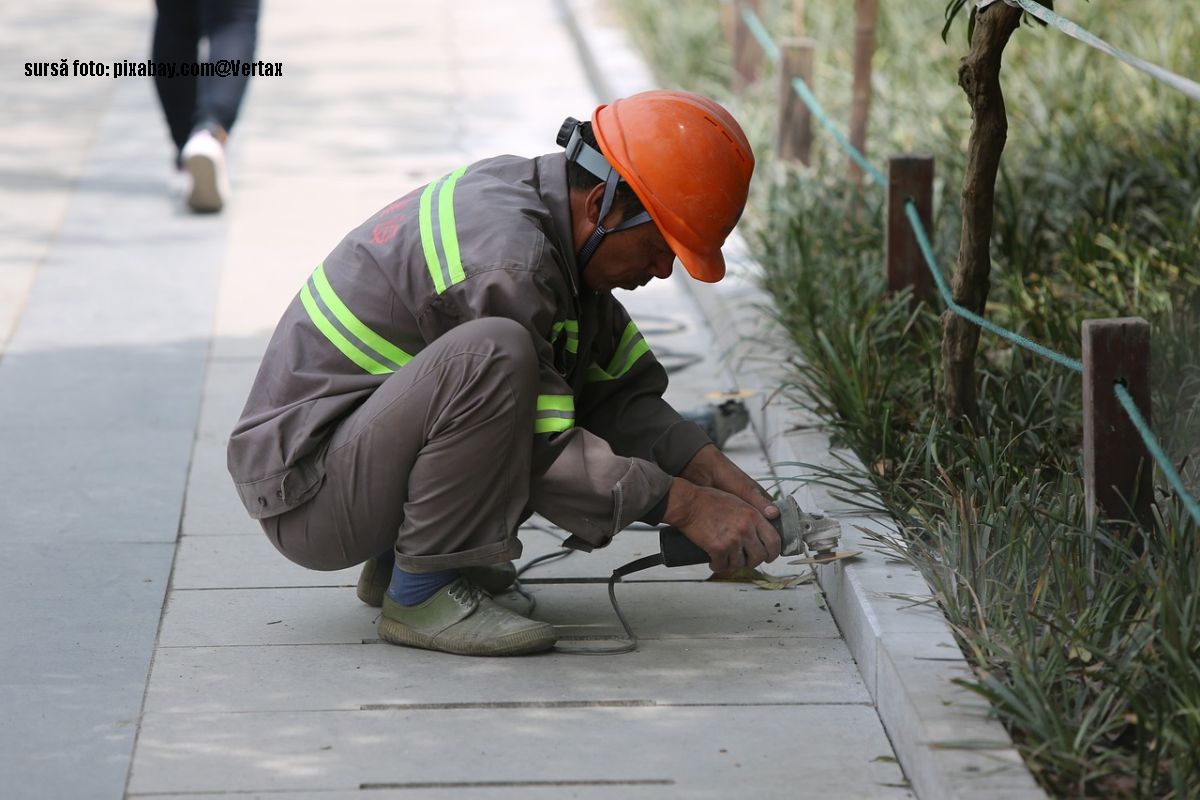Hiring unemployed people aged over 45
Finding a good job has in recent years become an impossible mission for many Romanians aged over 45.

România Internațional, 07.09.2016, 10:30
Getting a good
employment agreement has in recent years become an impossible mission for many
Romanians, especially people over 45 years of age, who at present account for
28% of the total number of unemployed people in Romania. No longer in their
prime, these people are unemployed at a time when their value, experience and
skills, accrued over the years, should be rewarded. According to the National
Employment Agency, at the end of 2015, 56.56% of Romania’s unemployed were over
40 years of age. Of these, more than half were aged 50 or above. The majority
of the unemployed now look to vocational retraining schemes, trying to learn a
new trade after a lifetime of working in the same place. But this too is no
guarantee they will get a job.
Such is the case of Vasile from Piatra Neamt. He
is 50 years old and has been unemployed for several years:
In the last three years since I’ve been
unemployed, I have been looking for a job, but it’s been very difficult. People
over 50 have a hard time getting a job. You go to an employer, he says he will
hire you, you file your resume and you wait, but in the end you don’t get an
answer. They hire instead people who are younger than you. After I applied for
unemployment benefits, I took up vocational retraining classes: I studied
accounting and IT, but even with these diplomas, nobody would hire me.
Employers look for qualified people, they don’t want people to train themselves.
Constantin is from Bucharest, is 48
years old and he too took up vocational retraining classes, which have done
little to earn him a job:
In 2010 I was laid off and offered no
position to retrain for. The state spends huge amounts of money simply because
it doesn’t provide training for other trades that are sought for on the labour
market. The Labour Ministry should work with other public institutions. They
achieve little by training people if they can’t place them on the market. They
don’t help you with anything. They give you employment benefits all year round.
Instead of training people, they would rather hire people straight off the
market. If you don’t have the specific skills, your chances of getting a job
are slim.
Therefore, people like Constantin
and Vasile face a lot of discrimination, even though the Romanian legislation
specifically forbids age-specific discrimination in the field of employment.
The anti-discrimination coalition does help you identify the public authorities
where you can file a complaint describing the inequity or bias you are faced
with. Teodora Ion-Rotaru, a PR and communication officer with the
anti-discrimination Coalition has more:
The workplace is the only other place
where discrimination becomes more visible. Elderly people are faced with such
forms of discrimination, but we, at the Anti-discrimination Coalition can help
them, by providing them free-of-charge judicial counseling, straight on our
website, anti-discriminare.ro. These people can talk directly to a legal expert
about the methods they can use to prove they have been subject to age-specific
discrimination. They can also learn about the kind of evidence they can provide
in this respect, whether the situation they are confronted with actually
involves forms of discrimination, as well as about the institutions they might
further refer their case to. European studies show that Romania is one of the
European countries with the highest rates of discrimination. On the other hand,
Romanians’ perception of discrimination is lower. Romanians don’t perceive
discrimination the same way as other foreign citizens, neither do they fully
know their rights in order to be able to defend themselves when discriminated
against. It’s very important that people should notify the authorities when
facing discrimination. The anti-discrimination law is there, it is
comprehensive and covers the labour field. But in order to be enforced, we
encourage people facing discrimination to address the Anti-discrimination
Coalition and go to the relevant institutions to seek justice.
Every year, the
National Employment Agency organizes vocational training programs, aimed at
ensuring the growth and diversification of professional skills, with the
purpose of guaranteeing mobility and reintegration on the labour market. In
2016 the Agency will organize 2,200 such programs for approximately 42,000
people, who will benefit from free-of-charge professional training. Last year,
as a result of the measures taken under the Employment Program, some 108
thousand people aged over 45 were reintegrated on the labour market.
Daniela
Stirbu, the head of the Communication Department with the National Employment
Agency, gave us more details:
In March 2016, there were 171 vocational
training programs running nationwide, attended by 3252 people. Most such
programs qualify people as salesclerks, cooks, data operators, plumbers,
hairdressers, manicurists or waiters. Most people who attended these classes
were from Brasov, Bihor, Hunedoara, Mures and Covasna counties. For further
details, people can address our territorial branches in the area of their
residence.
All employers who
hire various categories of unemployed people will this year be given subsidies
ranging from 110 to 170 euros for every person they hire. Basically, with the
help of these state subsidies, employers will be able to cover part of their
salaries and still save money. In the first eight months of last year, as a
result of enforcing the measures provided in the Employment Program, 8,812
people aged over 45 years and 142 people who can retire within five years were
reintegrated on the labour market.






























